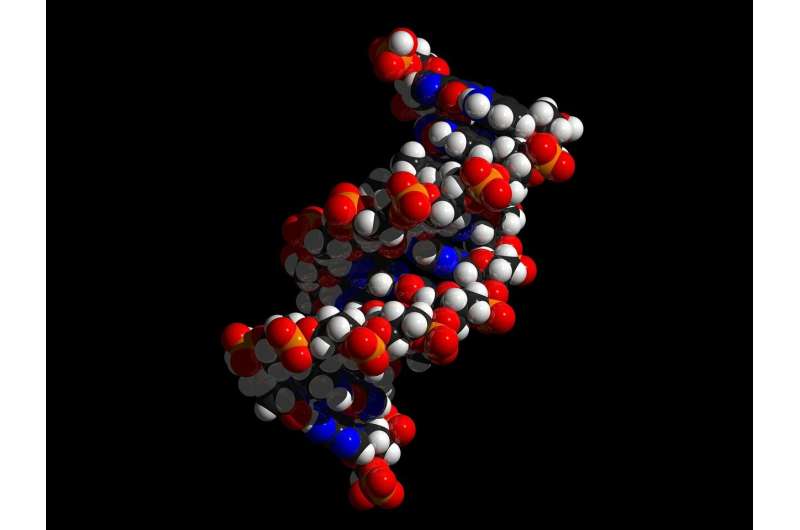Credit: CC0 Public Domain
A new study harnessed the unique genetic history of the people of Finland to identify variations in DNA that might predispose certain individuals to disease, whether or not they are Finnish themselves. The study was conducted by researchers at Washington University School of Medicine in St. Louis, in collaboration with the University of California, Los Angeles; the University of Michigan and other institutions, including several partners in Finland.
The research, published July 31 in the journal Nature, identified 26 potentially harmful DNA variations relevant to cardiovascular and metabolic health. For example, such variations might alter a person's lifetime risk of developing obesity, diabetes or high cholesterol levels. Though this analysis is just a starting point to delve more deeply into the health consequences of these types of DNA variants, the study is an important milestone in demonstrating the effectiveness of this population approach to genetic research. Of the 26 DNA variations identified, 19 are either unique to Finnish individuals or over 20 times more frequent in Finland compared with elsewhere in Europe.
Without this unique population—isolated and relatively genetically similar—the researchers estimate they would need to sequence the DNA of hundreds of thousands to millions of people to find these same associations, rather than the relatively manageable 20,000 individuals analyzed in this study.
According to the investigators, this study is among the most comprehensive examinations of the impact of coding variation—DNA changes that impact protein structure and function—on measures of cardiovascular and metabolic health, an endeavor greatly facilitated by Finnish population history.
"The small population of people who first settled this part of the world—combined with relatively little immigration that would add variation to the gene pool—has pushed important genetic variants that first existed in the founding population to expand and become much more common than they would be elsewhere," said first author Adam E. Locke, Ph.D., an assistant professor of medicine at Washington University School of Medicine in St. Louis. "Now we can delve into the patient data—which is extremely well-characterized through Finland's national health-care system—to understand how these genetic variants influence overall health and disease risk in the people who have them."
Finland is a relatively isolated country, and with two major population bottlenecks over its history, the Finnish people have DNA more similar to one another than people in many other parts of the world. Such bottlenecks occur when a major event—perhaps a violent conflict, disease or natural disaster—causes a large drop in population. The population that then expands after the event is more genetically similar than before. The effect has produced a set of genetic diseases—called the Finnish Disease Heritage—that can occur anywhere but are much more common in Finland than in other European populations. Conditions listed on the Finnish Disease Heritage are caused by mutations in a single gene and often have severe effects on health.
Though many studies have employed the unique history of the Finnish people for genetic discovery, this is among the first to comprehensively examine the impact of rare, coding DNA variants—the kind that impact protein structure and function—on common conditions that typically involve more subtle changes in genetics than those driving the conditions of the Finnish Disease Heritage.
According to the researchers, some of the more intriguing DNA variants identified are associated with changes in cholesterol levels, differences in levels of amino acids in the blood—which, depending on the specific amino acids, can suggest a number of health problems, including liver or kidney dysfunction—and changes in height and body weight.
Locke said his work primarily is focused on data from Finland, but the researchers would like to expand this type of study to include similarly isolated populations of people from different parts of the world. For example, communities of people living on islands such as Sardinia in Italy, Crete in Greece or the Samoan Islands in the South Pacific also might provide similarly genetically unique populations to study, and perhaps highlight some different yet universal aspects of human health.
More information: Locke AE, Steinberg KM, Chiang CWK, Service SK, et al. Exome sequencing of Finnish isolates enhances rare-variant association power. Nature. July 31, 2019. DOI: 10.1038/s41586-019-1457-z , nature.com/articles/s41586-019-1457-z
Journal information: Nature
Provided by Washington University School of Medicine




















